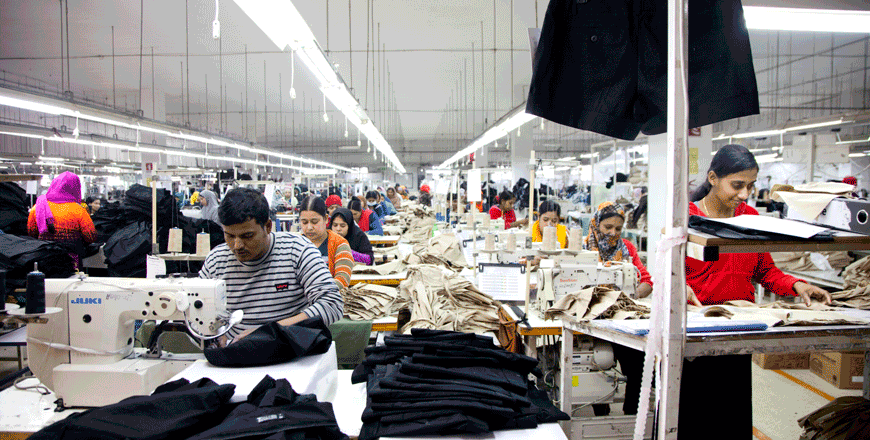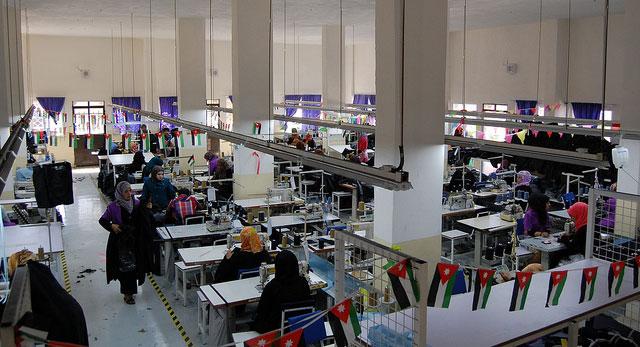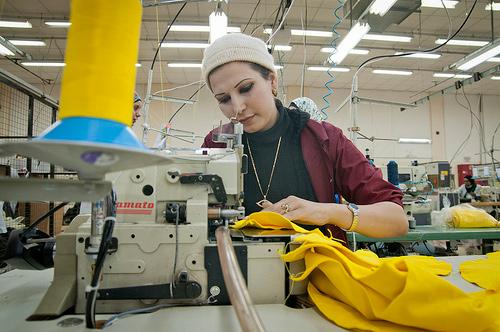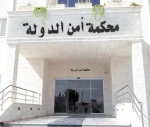You are here
Garment exports on rise despite domestic trade dive in 2018
By Maram Kayed - Jan 27,2019 - Last updated at Jan 27,2019
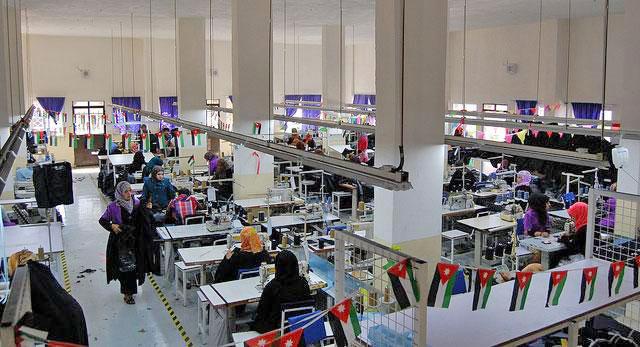
The European Bank for Reconstruction and Development on Sunday released the findings a study showing Jordan’s garment exports are growing and should continue to grow (JT file photo)
AMMAN — Garment exports are increasing, and will continue to grow, a study published on Sunday by the European Bank for Reconstruction and Development (EBRD) showed.
Meanwhile, domestic garment sales took a sharp dive in 2018, declining by nearly 60 per cent, according to President of the Textile and Readymade Clothes Syndicate Munir Deyeh.
Although no official statistics were readily available for The Jordan Times, a source at the Jordan Enterprise Development Corporation, who preferred to remain anonymous, stated that that the garment export sector in Jordan is a $1.8-billion industry.
It is expected to “grow by at least 8 per cent this year”, the source reaffirmed.
Notably, the US is currently Jordan’s number-one export market, he said.
Some $1.2 billion worth of commodities are exported to the United States, Secretary General of the Jordan Investment Committee Fredon Hartoka told The Jordan Times.
“Almost 85 per cent of those are garments,” he added.
On another hand, Jordanian garment exports to the European Union are also expected to increase, in light of the simplified rules of origin agreement, Hartoka said, adding that it “will create more jobs and boost the sector’s revenues”.
The simplified rules of origin agreement between Jordan and the EU was signed in 2016, and is valid until 2026.
It allows for Jordanian manufacturers to export local products to the EU with up to 70 per cent of the product’s make-up comprised of imported materials.
Still, the sector, despite its growth, faces several challenges. They include the absence of trained and qualified local labour, high borrowing costs (interest on loans and credit facilities) and the lack of experience among leaders of the sector’s SME subsegment.
“Out these challenges, I think the percentage of foreign labour in the sector is the most pressing issue, and it needs to be addressed promptly,” said Khaled Al Saheb, principal manager for EBRD’s SME finance and development group in Jordan.
Saheb noted that 75 per cent of workers in the sector are foreign labourers.
“Factory owners seem to think that hiring foreign labour is cheaper, but the fact is that there is a minimum wage that workers — regardless of nationality — must be paid,” he added.
On the other hand, many Jordanian youths think they are overqualified to be working in factories, said Adnan Ziadat, president of Competent Management Consulting, especially “Jordanians who hold a degree”.
“Many young Jordanian women who hold university degrees are employed at multiple garment and textile factories, mostly in the northern region, close to Irbid, and Duleil,” argued Fathallah Emrani, president of the General Trade Union of Workers in Textile Garment and Clothing Industries.
“The truth is that there is a difference in mentality, and it is noticeable when it comes to the more urbanised parts of the country. Our most sustainable local workforce is centred around Irbid, contrary to the satellite projects and remote poverty pockets, where there is a more tangible need for employment.” Emrani underlined.
Commenting on Saheb’s note on wages, Emrani continued to explain that the minimum wage is generally not appealing to Jordanians, even though it is relatively feasible.
The sector offers various incentives, as well as two meals a day for employees, and covers transportation, which means that “the JD220 they make goes straight into their pockets”, Emrani exclaimed.
One of the most important incentives some factories offer is the monthly bonus workers get when they do not miss a day of work, he added. “These bonuses range from JD15 to JD40.”
According to Emrani, Jordanian workers are not inclined to work overtime, which is another reason why the sector leans towards employing a foreign workforce.
“Give me 1,000 Jordanians to employ in the sector and I can easily find jobs for them, provided that they commit to the work,” he concluded.
Twelve-year psychometric specialist Afifa Shafei, also the MENA regional managing director of business management consultancy company Taqyim, contends that Jordanians who hold degrees “tend to not only avoid working in garment factories, but in any job that includes physical labour”.
She explained that several factors are at play behind this mentality.
There is a need to find a job that society deems “prestigious”, she elaborated.
Working in a well-known company in their field is almost every Jordanian university graduate’s dream, especially if their peers have succeeded in securing such jobs.
Shafei said: “Peer pressure continues to play a role throughout one’s life, so if everyone is getting office jobs, then ‘why wouldn’t I?’ one would think.”
“This is on top of the pressures by members of the family, who expect their sons or daughters to work in something ‘worthy’ of their degree, even if working in a factory pays more,” she added.
In the case of Rawan Momani, a Computer Science graduate who works in a garment factory in Ajloun, the reasons listed by Shafei “did not prove as strong as the need to put food on the table”.
“When one has seven siblings, and a father who cannot work due to a recent serious surgery, the luxury of having an office job is not as important as bringing in money,” Momani said.
Most of the other workers in the factories hold degrees as well, but they, like her, have families to support and so they applied for the factory.
“It is the same pay as any other entry-level job in my field, so I am not missing out on anything, in my opinion,” Momani concluded.
Related Articles
AMMAN — Despite progress in compliance and the joint efforts of the government, employers and labour unions for a collaborative garmen
AMMAN — As the government vowed to allow Syrian refugees to join the Kingdom's labour market if the world helps with encouraging sufficient
AMMAN — Poor ventilation, plumbing, sanitary services, failure to renew work permits and delayed payments are some of the violations that Ba


